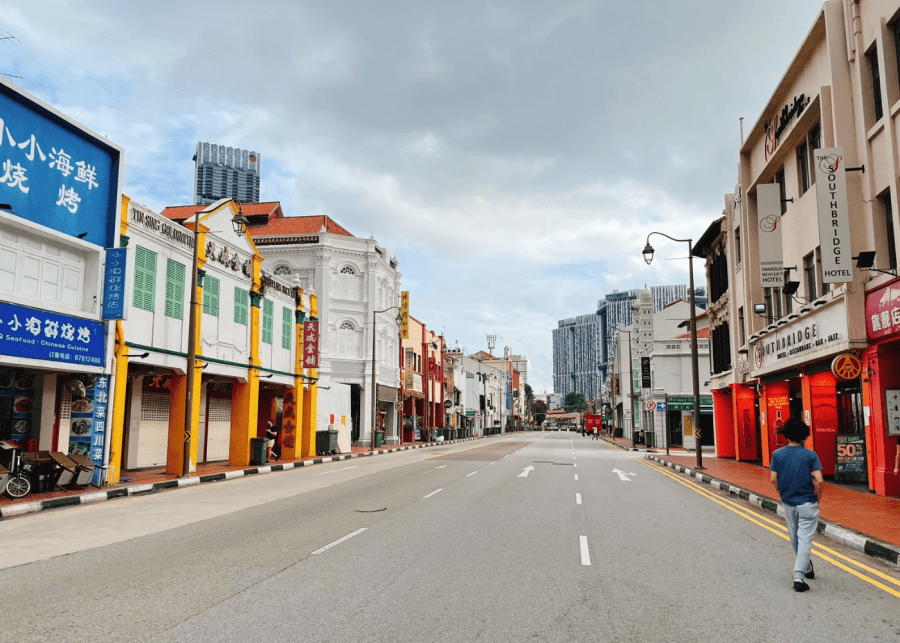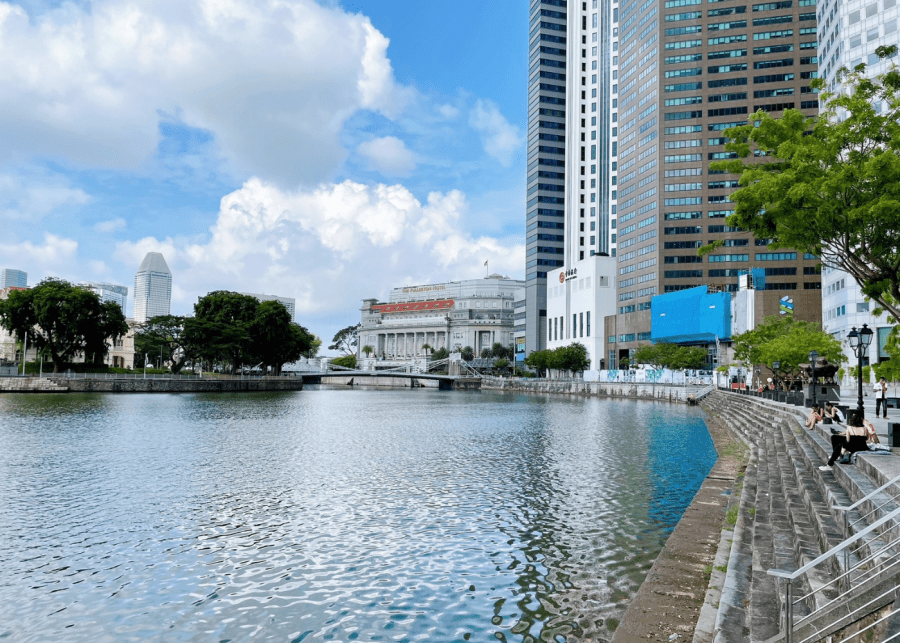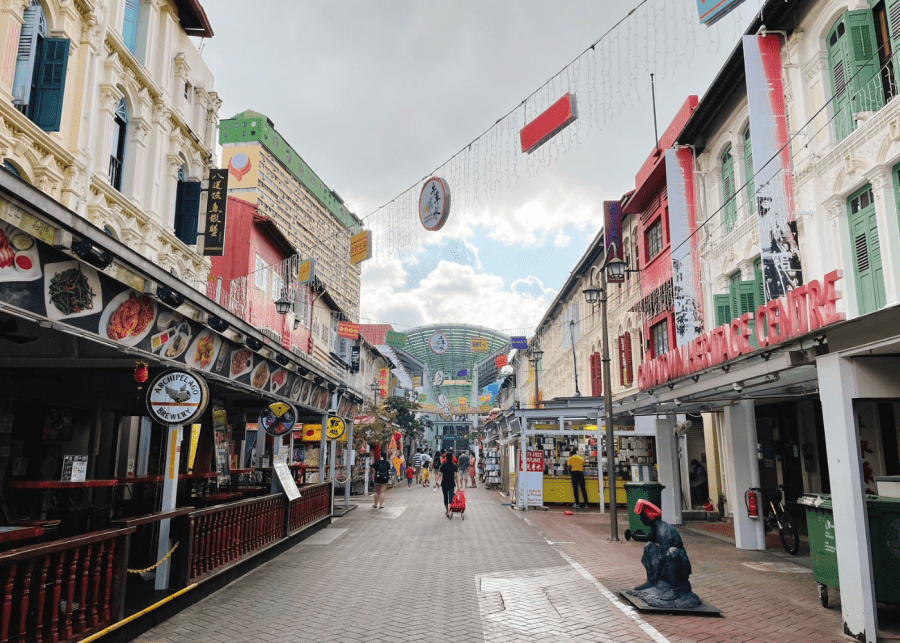
From historical tales to personal stories from ex-offenders, I experienced it all on this heritage tour. Psst: you can use your SingapoRediscovers vouchers!
Ever wondered about the dark side of Singapore? We often rave about our Garden City’s lush green parks and stunning architectural marvels, overlooking things that don’t fit our rep as a squeaky clean and sterile country. But there’s so much more to us. That’s why Triad Trails is here to unearth fascinating facets of the city’s seedy underworld. Giving new meaning to familiar sights in Chinatown, the walking heritage tour – guided by former gang members – uncovers the enclave’s secret society past.
This collab between tour operator Actxplorer and social enterprise Architects of Life combines elements of history with personal stories from ex-offenders. The result? A riveting experience that’ll give you a fresh perspective on the neighbourhood and its people. Oh, and thanks to my SingapoRediscovers vouchers, I didn’t have to pay a cent for the 2.5-hour tour (it’s $70, including lunch).
Opium dens and secret society headquarters

It’s a rainy and slightly gloomy Saturday when our small group meets Bruce Mathieu, our guide. Instantly, he brightens up our day with his honest humour and I realise this isn’t going to be like any other tour. The 52-year-old French-Chinese is fluent in multiple languages – and he’s as colourful and candid as they come.
Our trail starts off at UOB Plaza 1, along the Singapore River, as Bruce points out landmarks and reveals no-holds-barred nuggets of history interwoven with amusing jokes. He tells us how his gang used to run security services for popular nightclubs in Singapore. And how the yellow shophouses nearby – now occupied by eateries – formerly housed the third largest secret society in Singapore.

Before we round the corner towards Yueh Hai Ching Temple, one of the oldest in Singapore, Bruce points out he attended kindergarten at Telok Ayer. And he reveals the shops outside OCBC Centre were previously brothels and opium dens. Betcha didn’t know that – I definitely didn’t, even though I’ve worked in the nearby areas for years.

When we reach China Street, he shows us the headquarters of the city’s largest secret society in the 1800s. From gambling to drugs, the area was bustling with activity. His grandfather used to own a noodle and popiah stall here, Bruce says, so he learned the trade too.

People joined gangs back then for survival, to avoid being beaten up or cheated when they were Chinese immigrants fresh off the boat, he explains. What about now? He throws the question to the group and someone pipes up, “For fun?” He nods, adding that motives have changed over the years.
Hooked on drugs at an early age

At 13, most of us were probably stuck in a cycle between school and endless homework. But for Bruce, that’s when he started experimenting with marijuana after a difficult childhood. He’s sincere and open about his experiences, revealing how he savoured that high and became addicted to heroin by 15. That marked the beginning of all his troubles for the next three decades.
“Heroin withdrawal is no joke,” he declares. “Heroin is in a league of its own; it’s something I don’t wish anyone to try. The physical part isn’t the most worrying – it’s the mental part [of being addicted].”

As he takes us down Pagoda Street, he dives deeper into his story, sharing how he turned violent because of drugs. He was imprisoned five times and spent a total of 10 years behind bars. “The more a person goes to prison, the harder his heart gets,” he says of his repeated offences.
The turning point for him? A poignant moment when his young daughter visited him in prison during her birthday and wept when he couldn’t do the simple act of hugging her. That heartbreaking incident sparked a fire in him. From his faith, he found the strength to change, and now he readily shares his story with others so they can learn from his life lessons.
Food for thought

After admiring street art along the way, the tour ends with a casual meal at Genius Central on Amoy Street with other ex-offenders telling their compelling stories. At my table, I share a meal with Beng Kim and other tour participants. His story starts at the age of 10 when he joined a gang as a watchman in a gambling den. At 13, he moved on to nightclubs. Over the years, he eventually climbed his way up to the role of headman.
After a brush with drugs and prison, he established his own loan shark syndicate. He was only in his early 20s, but life was good – he had all the material possessions he could dream of. However, at 29, just three days before his birthday, he was caught and lost almost everything in prison. That was the wake-up call he didn’t know he needed.
“Society gave me a death sentence; my family said I couldn’t make it,” he says of his imprisonment. “If you don’t have a renewed purpose, it’s easy to relapse because of peer influence.”
Renouncing his gang in prison wasn’t easy, but Beng Kim found faith, meaning and purpose in life during his six-year stint behind bars. He also learnt self-discipline and used this time to study and prepare himself for the future. Speaking of his experience, he exudes a calmness that hints he’s made peace with his past. Now a program manager for residential care at a charity organisation that helps ex-offenders, he talks compassionately about his “brothers with a common background”.
When he was first released from prison, people still saw him through the lens of his notorious reputation. Mistreatment and misunderstandings were common, but he emphasises it’s how you respond that makes a difference. That’s why he encourages his fellow brothers to see such instances as opportunities to show others how they’ve changed.

As our time together comes to an end, I’m left with a sense of admiration and respect for these men who’ve done a complete 180 in their lives. Using prison as a stepping stone to better themselves, they’re now committed to do better and bring good to the world. The change is inspiring, and these incredible real-life stories give the standard heritage tour experience a uniquely human touch.
Triad Trails, $70, every Saturday, book online
[Note: The sit-down meal will be replaced with takeaway sets until the Covid-19 group dining restrictions have been lifted.]

